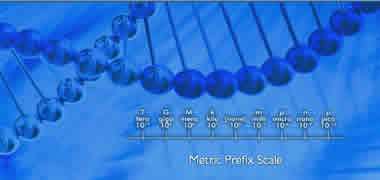
The Regenerative Medicine Institute (REMEDI) at NUI Galway and Irish start-up Poly-Pico Technologies Ltd. have successfully executed a new and exciting scientific proof-of-concept involving the use of sound waves to dispense living stem cells. Using the Poly-Pico micro-drop dispensing device, the researchers were able to isolate individual adult stem cells from a bone marrow sample.
The ability to isolate individual stem cells in a quick, scalable and cost-efficient manner is attractive to scientists working in the field, as current methods are often time-consuming and costly. Individual cells can then be replicated into exact copies of themselves for experimental purposes, or various drug compounds could be applied to the individual cells to see what effects occur. Further down the line, there is the tantalising prospect of perhaps being able to use such dispensing devices as a form of tissue engineering.
Poly-Pico Technologies Ltd. is an Enterprise Ireland High Potential Start-up (HPSU) company, which spun out from the University of Limerick and is now based in Galway. The company has developed a unique, accurate and highly versatile device, which uses sound energy to accurately dispense a wide range of fluid / materials at very low volumes (picolitre to nanolitre). The novel technology uses disposable cartridges to dispense materials such as proteins, antibodies, DNA and other compounds for biological applications as well as providing industrial solutions for the precise dispensing of adhesives, lubricants; and coatings.
Now, for the first time, REMEDI scientists have successfully used the same technology to dispense stem cells, thereby demonstrating a capability of the instrument which will open up further applications in life sciences.
In the proof-of-concept experiments, living stem cells were dispensed one at a time onto different surfaces using the sound wave technology. The delicate stem cells remained viable and continued to grow after being dispensed. “This gives us some ideas about new uses for the instrument”, says Frank Barry, Scientific Director of REMEDI at NUI Galway. If we can deliver stem cells accurately and rapidly, we can potentially engineer new tissues in the laboratory based on complex arrays of dispensed cells. If we try to look into the future, it is possible to envisage that human tissues could be manufactured using this kind of technology, thus avoiding the need to identify tissue donors for transplants.”
Alan Crean, CEO of Poly-Pico Technologies, commented: “We are delighted to see this new technology opportunity emerge at the interface between biology and engineering. We look forward to working with REMEDI and NUI Galway on developing stem cell applications using our acoustic methods. There are other exciting applications of Poly-Pico’s unique technology in, for example, drug screening and DNA amplification. Our objective here is to make our technology available to companies, and researchers, and add value to what they are doing. This is one example of such a success.”
This proof-of-concept was carried out under the Enterprise Ireland Commercialisation Fund. The technology was then advanced using an Innovation Voucher, an Enterprise Ireland initiative developed to build links between Ireland’s public knowledge providers (i.e. higher education institutes, public research bodies) and small businesses.